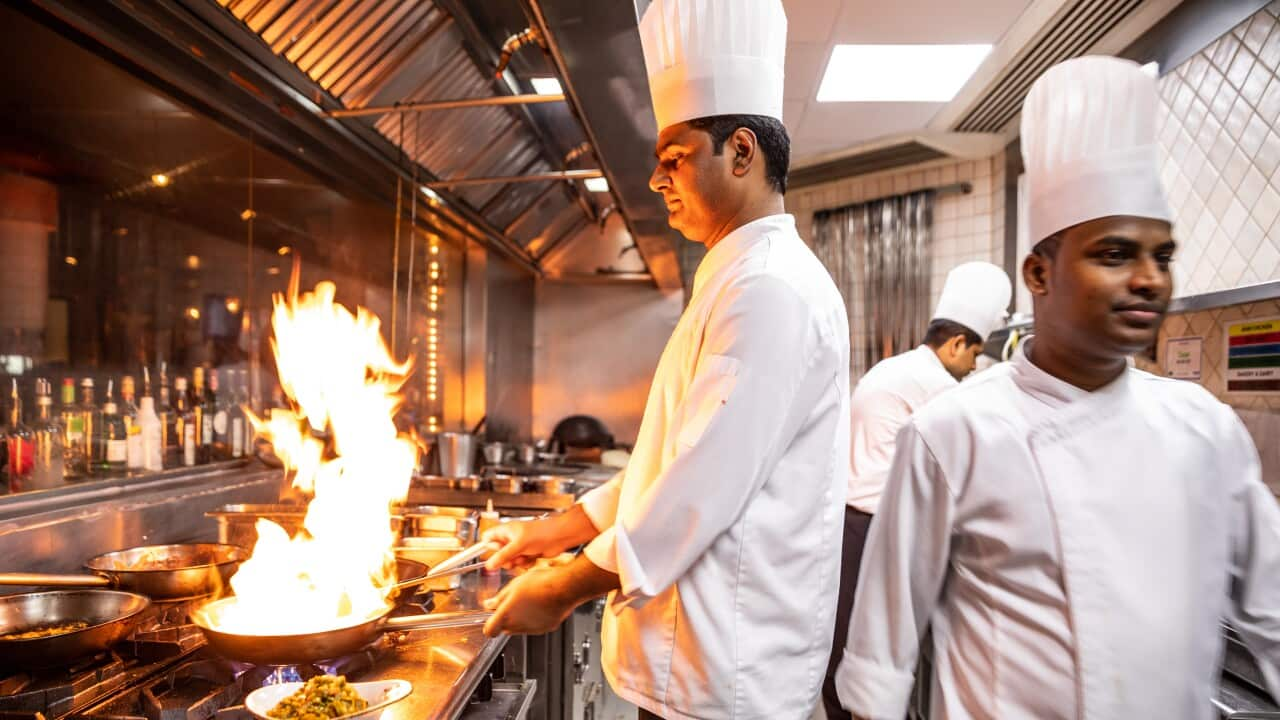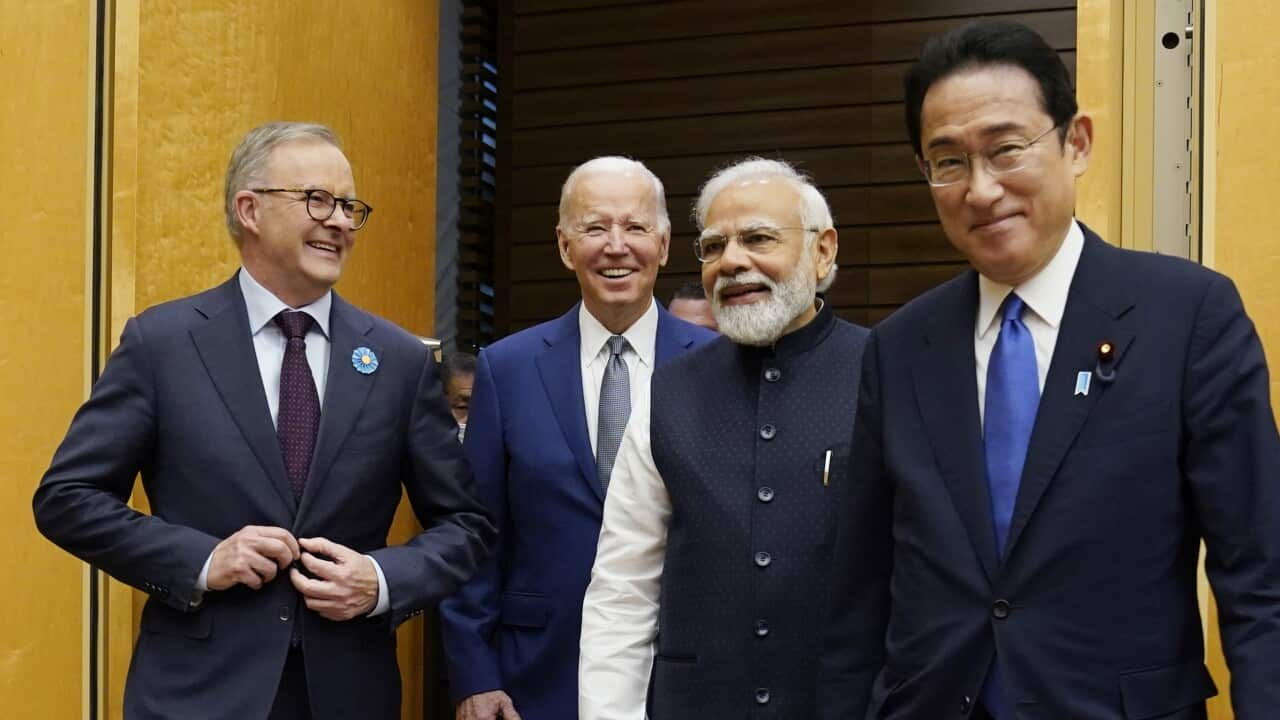Minister for Home Affairs, Clare O’Neil, last week announced that as of 1 July, 2023, the Temporary Skilled Migration Income Threshold (TSMIT) will be increasing from $53,900 to $70,000.
As a result, employers seeking to sponsor overseas workers will have to offer them at least $70,000 in salary plus superannuation.
LISTEN TO

From Delhi slum to Australia, meet Sumit who won 2022 Sydney Scholars India Equity Scholarship
SBS Hindi
10:46
Minister for Immigration, Citizenship and Multicultural Affairs, Andrew Giles, said: "...the Temporary Skilled Migration Income Threshold was frozen for a decade by the former Liberal Government, including the six years where Peter Dutton was Minister. This is not fair for migrant workers and it is not fair for Australian workers."

The Prime Minister, Anthony Albanese (C) with the Minister for Multicultural Affairs, Andrew Giles, and the Member for Chisholm, Carina Garland. Source: AAP / DIEGO FEDELE/AAPIMAGE
"The new $70,000 income threshold is approximately where the TSMIT should have been if it had been properly indexed over the previous 10 years," it said adding that this is the government’s first action in response to the independent Review of the Migration System led by Dr Martin Parkinson, which found that Australia’s migration system is "broken".
Even though the recent announcement is expected to fix the migration system, Indian restaurant owners have expressed frustration, saying hiring skilled labour on higher wages will ultimately increase their operating costs.
"The restaurant business is already under intense pressure after COVID. We have a labour shortage and inflation has cut footfall (number of diners) by at least 20 per cent," said Sunita Kumar, owner of Canberra's Dana restaurant.

Sanjay (L) and Sunita Kumar (R) run an Indian restaurant in Canberra which last year won the Gold award in the Indian restaurant category at the Restaurant & Catering Hostplus Awards for Excellence. Credit: Supplied by Dana Restaurant
She says Dana, a top fine dining Indian restaurant that recently won an award for best Indian restaurant, will face a greater problem should its prices rise.
"Our prices are already high as compared to other restaurants around the country, so we can't increase them further. But these add-on costs are ultimately passed on to customers," she says.
Sumit Malhotra, who has been in the catering industry for the past 20 years and owns eight restaurants across Melbourne, echoes similar sentiments.

Sumit Malhotra runs a chain of Indian restaurants in Melbourne. Credit: Supplied by Aagan
"Government should actually see us (through) a different lens. They should create a new visa category under which we can bring overseas specialised chefs and cooks for training local staff for at least a year," he adds.
“The pool of workers for our sector has become much smaller post-COVID as people who used to work in restaurants have shifted to new jobs. We have to start from scratch as almost all fresh candidates are new to the industry (and) need proper training,“ he said.
According to Restaurant and Catering Industry Association of Australia CEO Suresh Manickam small restaurants and family cafes will be the worst affected by this change.

Mr Suresh Manickam is the CEO of Restaurant & Catering Australia (R&CA). Credit: Supplied by R&CA
"From 1 July, the TSMIT changes along with the forced underemployment of international student visa holders to only 24 hours per week will exacerbate the labour shortage especially in Indian Restaurants," he said adding that R&CA has launched a petition regarding the same.
Indian-born chef, Daman Shrivastava, however, feels differently and says he believes the reform will bring in skilled workers from abroad.

Daman Shrivastava is a Melbourne-based chef. Credit: Supplied by Daman Shrivastava
"It will also attract people trained in the hotel industry who will see it as a better paying job," he adds.
The final report of the 'Review of the Migration System' released last week found that the TSMIT had been too low, and did not protect migrant workers from underpayment or protect lower-paid local workers from international competition.
"While many temporary skilled migrants earn considerably above the threshold, there has been a drift towards lower average wages, particularly in the TSS. Nearly all stakeholders support an increase in the TSMIT, with many suggesting a level between $70,000 and $90,000, a significant increase from today," the report says.
The report further notes that Australia already has a large migrant workforce engaged in lower-paid work.
"However, Australia has a large migrant workforce outside of these explicit programs. Some 1.8 million temporary visa holders are entitled to work in Australia, including 456,000 students, 112,000 working holiday makers, 666,000 New Zealand citizens and 204,000 Bridging visa holders as at 31 December 2022," the report adds.



